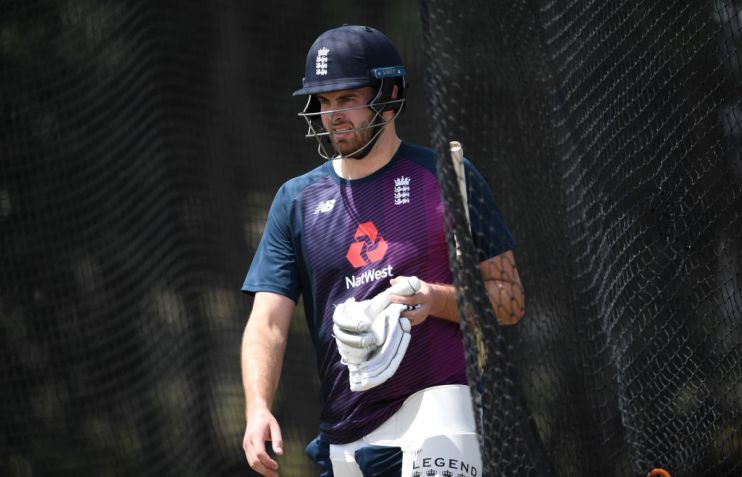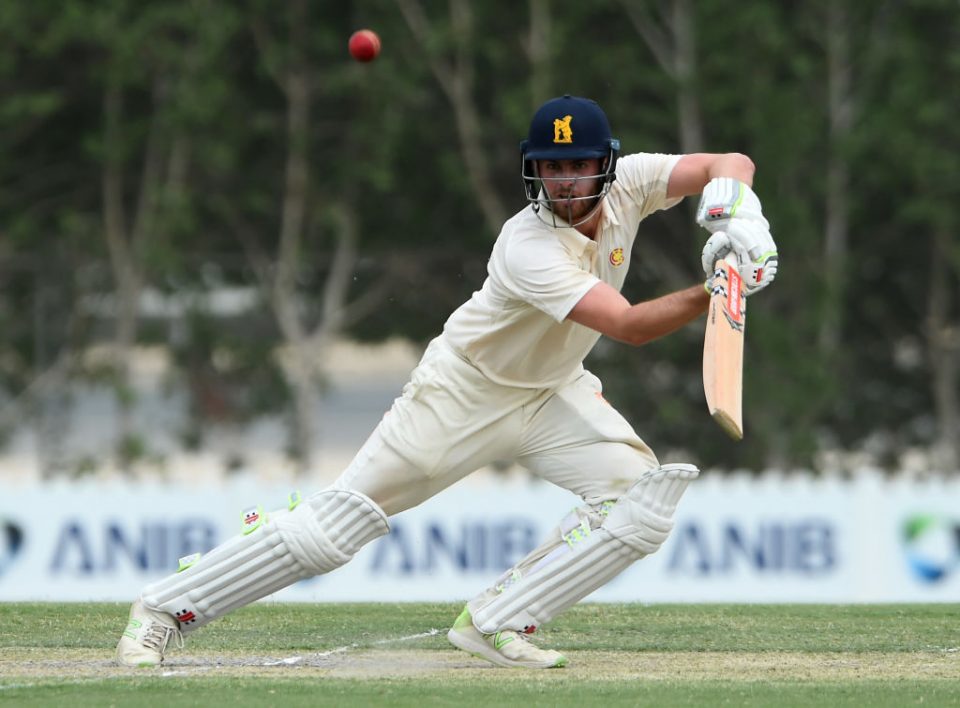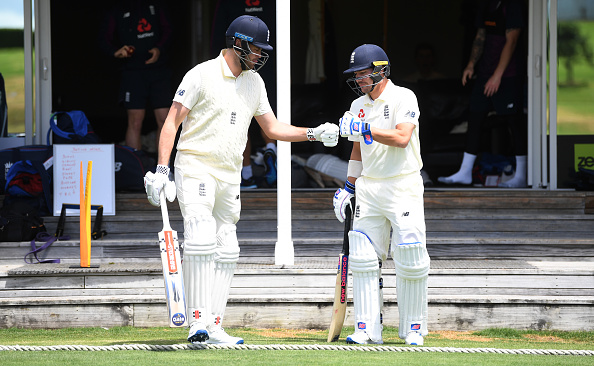Determined, organised, patient: The makings of England Test debutant Dom Sibley

An England Test debut has been a long time coming for Dom Sibley, and yet his timing could hardly have been more opportune.
The string of unsuccessful England opening batsmen may stretch back a long way, to the retirements of Andrew Strauss and Sir Alastair Cook, but the change of tack from gung-ho head coach Trevor Bayliss to the old-school Chris Silverwood suits Sibley down to the ground.
Stepping aside, for now at least, is the attacking white-ball specialist Jason Roy, and stepping into the void at the top of England’s batting order for the first Test against New Zealand in Mount Maunganui, which starts on Wednesday night UK time, is the more circumspect Sibley.
Read more: Sibley and Crawley look perfect fits for Silverwood, says Tremlett
A first-class strike-rate of 41.87 – nearly half that of his predecessor Roy – doesn’t tell the whole story, but it does help to explain the 24-year-old’s biggest selling point and why he fits the Silverwood mould.
Batting a long time
After a prolonged period of instability, of being forced onto the back foot early on and of nullifying the middle-order threat by exposing them to the new ball too often, Silverwood wants to promote “the method of batting for a long time”.
Enter Sibley, an opening batsman who scored 1,324 runs from 3,024 balls at an average of 69.68 for Warwickshire in the County Championship this year. To put those numbers in context, no other batsman in Division One managed to consume more than 2,000 balls; “batting for a long time” is Sibley’s modus operandi.

“It is not how you look, it is how many you get,” Sibley told The Telegraph last week. “For me it is just about trying to get through the new ball. If you can get past the new ball on the pitches we play on then it is about making it count and getting the big scores.
“It is more played upstairs than technically. Batting long periods of time is a strength of mine. There has been chat about that sort of stuff being what England want. Maybe it is good timing.”
Turning heads
Like many who eventually reach England Test level, Sibley has been earmarked for success for some time. Matt Homes, director of cricket at his local club Ashtead Cricket Club in Surrey, told The Cricketer recently that Sibley “stood out at every age group”.
He was soon picked up by Surrey’s academy, making his way from the under-9s all the way to the first team where, in 2013, he really turned heads. Aged 18, Sibley became the second youngest English player, behind the legendary WG Grace, to score a first-class double hundred, when he made 242 against Yorkshire.

Like then-Surrey team-mates Roy and Rory Burns – and the likes of England footballer Callum Hudson-Odoi and rugby players Danny Cipriani and Elliot Daly – Sibley came through Whitgift School in Croydon.
Despite being seen as a future star at Surrey, in August 2017 Sibley made the brave decision to turn down a three-year contract and join Warwickshire, who were soon to be a Division Two side.
‘Ugly duckling’
The choice wasn’t bearing fruit until, after working with renowned batting coach Gary Palmer in September 2018, he made a breakthrough.
Palmer, who has worked with Cook and Ian Bell among others, helped Sibley implement a more front-on technique, implored him to play straighter and alter what director of English cricket Ashley Giles, who signed him at Warwickshire, described as an “ugly duckling” style.
The results have been staggering. Having previously managed 2,178 first-class runs at an average of 29.83, he has returned 2,019 first-class runs at 72.10 since.
“The main strength is that he hits the ball straighter than he has ever done,” Warwickshire director of sport Paul Farbrace told The Times.

“When I first saw him play he was very much through mid-wicket, but he’s straightened up and he hits the ball down the ground an awful lot. [He is] very organised, very patient and he’s happy to bat all day and take his time scoring runs.”
Burns, who used to give Sibley lifts to Surrey training and is set to open the batting alongside him at the Bay Oval, has been suitably impressed.
“I’m very proud of him, to have got to where he has, particularly having left Surrey and doing what he’s done at Warwickshire. That’s a testament to him as a character,” he said this week.
“His concentration levels and determination to go about that process are his strong points. He likes batting time, he can bat days at a time, and he’s willing to grind bowlers down and not necessarily race away at the start of an innings.”
After countless failed partnerships and years of finding themselves 13-2 after 10 overs, Sibley’s careful approach could prove to be the antidote England need.
Main image credit: Getty Images